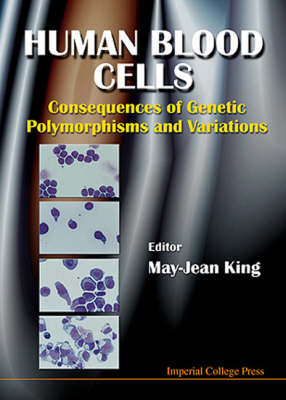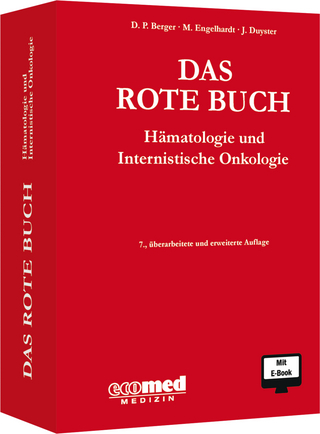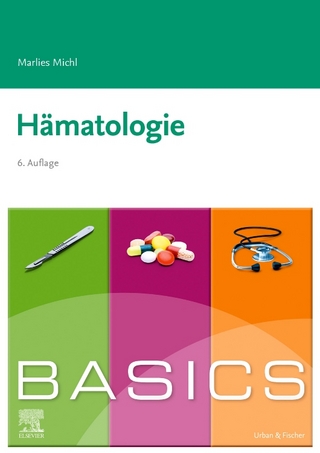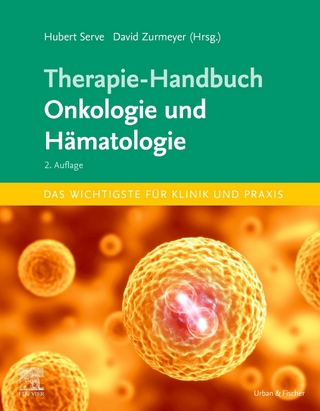
Human Blood Cells: Consequences Of Genetic Polymorphisms And Variations
Seiten
2000
Imperial College Press (Verlag)
978-1-86094-196-2 (ISBN)
Imperial College Press (Verlag)
978-1-86094-196-2 (ISBN)
- Titel z.Zt. nicht lieferbar
- Versandkostenfrei innerhalb Deutschlands
- Auch auf Rechnung
- Verfügbarkeit in der Filiale vor Ort prüfen
- Artikel merken
This volume uses selected molecules expressed on erythrocytes, lymphocytes, platelets and granulocytes to illustrate how genetic polymorphisms and variations in these molecules can affect their structure and function in mature human blood cells.
This important book uses selected molecules expressed on erythrocytes, lymphocytes, platelets and granulocytes to illustrate how genetic polymorphisms and variations in these molecules can affect their structure and function in mature human blood cells. The examples described tend to have a clinical association. Human blood group antigens and HLA antigens are classic examples of genetic polymorphism and they are important in blood transfusion and organ transplantation, respectively. In common with the blood group antigens, the polymorphic and variant antigens on platelets and granulocytes can be targets for antibodies in feto-maternal antigen incompatibility and transfusion reactions. Certain inherited haemolytic anaemias can be attributed to some of the polymorphic and variant forms of erythrocyte anion transport protein, spectrin, and glucose-6-phosphate dehydrogenase which exhibit abnormal structural or functional properties. Similarly, the study of cytokine gene polymorphism can provide a further understanding of the immune/inflammatory diseases and allogeneic transplantation.
This important book uses selected molecules expressed on erythrocytes, lymphocytes, platelets and granulocytes to illustrate how genetic polymorphisms and variations in these molecules can affect their structure and function in mature human blood cells. The examples described tend to have a clinical association. Human blood group antigens and HLA antigens are classic examples of genetic polymorphism and they are important in blood transfusion and organ transplantation, respectively. In common with the blood group antigens, the polymorphic and variant antigens on platelets and granulocytes can be targets for antibodies in feto-maternal antigen incompatibility and transfusion reactions. Certain inherited haemolytic anaemias can be attributed to some of the polymorphic and variant forms of erythrocyte anion transport protein, spectrin, and glucose-6-phosphate dehydrogenase which exhibit abnormal structural or functional properties. Similarly, the study of cytokine gene polymorphism can provide a further understanding of the immune/inflammatory diseases and allogeneic transplantation.
| Verlagsort | London |
|---|---|
| Sprache | englisch |
| Themenwelt | Medizinische Fachgebiete ► Innere Medizin ► Hämatologie |
| Studium ► 1. Studienabschnitt (Vorklinik) ► Physiologie | |
| Studium ► Querschnittsbereiche ► Infektiologie / Immunologie | |
| Naturwissenschaften ► Biologie ► Genetik / Molekularbiologie | |
| Naturwissenschaften ► Biologie ► Zellbiologie | |
| ISBN-10 | 1-86094-196-6 / 1860941966 |
| ISBN-13 | 978-1-86094-196-2 / 9781860941962 |
| Zustand | Neuware |
| Haben Sie eine Frage zum Produkt? |
Mehr entdecken
aus dem Bereich
aus dem Bereich
Hämatologie und Internistische Onkologie
Buch | Softcover (2023)
ecomed-Storck GmbH (Verlag)
129,99 €
Buch | Softcover (2024)
Urban & Fischer in Elsevier (Verlag)
54,00 €


